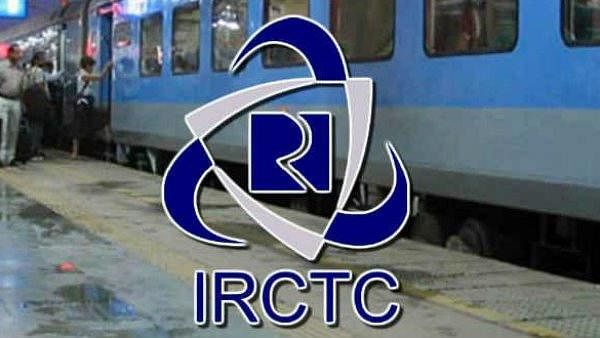
From letting customers book train tickets online, eating food or getting a bottle of drinking water within the Indian Railways network, the Indian Railway Catering and Tourism Corporation (IRCTC), one of Indian Railway’s most successful subsidiaries, operates in multiple businesses on the network. It is looking at diversifying its businesses to continue its growth.
Post its creation in 1999, pantry cars were introduced inside long-distance trains, internet-based rail ticket booking was launched as well. It has expanded to run mobile apps, data centres, food on and off the trains and even offers packaged drinking water, under the ‘Rail Neer’ brand to travellers.
Amid general gloom in the economy, this ‘mini ratna’ has been a success story for a long time, pioneering e-commerce and online booking in the country. It has also seen its revenue grow to Rs 1,956 crore in FY ‘19, up almost 25% from Rs 1,569 crore in the last fiscal year. Net profit stood at Rs 272.59 crore in FY ‘19, up from Rs 220.61 crore in FY ‘18. The company has recently seen a successful Initial Public Offering, backed by a balance sheet in the green and has emerged as the first and only company to operate the ‘privately’ run Tejas Express on the Indian Railways network. For the year ending June 2019, the company had declared an equity dividend of 298.50% amounting to Rs 29.85 per share.
Blockbuster IPO
IRCTC made a blockbuster stock market debut last month, opening for trading at Rs 644 on the BSE, a whopping 116.48% jump on the first day compared to its issue price of Rs 320 per equity share. The bear run has continued with the shares of the company surging by almost 6% to close at Rs 932.80 on the BSE on Monday.
“This is historic. We are the first PSU to have achieved such a success on listing,” IRCTC chairman and managing director Mahendra Pratap Mall had said when the IPO made its debut last month.
As part of its strategy to diversify its business offerings, IRCTC plans to develop budget hotels in key tourist destinations, Mall had said, adding it is already developing a budget hotel in Lucknow.
“We are undertaking various initiatives for diversifying our businesses. We have already started work on our first hotel in Lucknow,” he added.
The IPO to raise Rs 645 crore was subscribed close to 112 times by the end of the bidding process, according to data put out by the National Stock Exchange.
In a note before the IPO, brokerage firm Motilal Oswal had said, “Based on FY19 consolidated numbers, the issue is priced at a price to earnings (PE) of 19 times. The company is likely to benefit from monopolistic nature of the business, significant growth over FY19-21, an asset-light business model with healthy dividend payouts, and strong parentage.”
The draft prospectus of the public offer states that the company’s return on equity has exceeded 23% since FY ‘17 and the company has been profitable and debt-free since inception, making it an outlier among Indian PSUs.
What do they do
IRCTC essentially operates in four major segments -- internet ticketing, catering, selling packaged drinking water. It is also involved in e-catering, executive lounges and budget hotels. The red herring prospectus states that while catering services contributed a lion’s share of 55% to FY19 revenues, internet ticketing and packaged drinking water contributed 12% and 9% respectively. with the travel and tourism business contributing the rest.
Interestingly, over the past two years, catering has seen its share of the revenue double, while internet booking, that was once the company’s mainstay and used to contribute more than 30% of revenue in 2017 has seen a dip to only 12.5% of the revenue in 2019. The company does not shy away from its monopolistic hold over many aspects of the Indian Railways and states, “This allows us to make certain operating and strategic decisions without focusing on the impacts of those decisions vis-a-vis other competitors.”
The company plans to expand its base kitchen network, and set up about 15-20 greenfield base kitchens and convert some Jan Ahar outlets on railway stations into base kitchens. From 1 September, the company has reinstated the convenience fee in the range of Rs 10-30 per booking on its web and mobile platforms. Since IRCTC handles 2.5 crore transactions a month, the firm believes this move is bound to net revenues from Rs 300-900 crore.
Online and more
The company has 1,384 full-time employees across business verticals and operates one of the most transacted websites in the Asia-Pacific region with a transaction volume of more than 25 million per month and 7.2 million logins per day, according to the prospectus.
It is working on developing the IRCTC iMudra wallet to promote digital payment options. Last year, the company also launched the i-Pay payment gateway on a pilot basis that is designed to handle domestic debit and credit cards transactions. The company has also set up a data centre to process the volume inflow daily.
Drink it up
The packaged drinking water space on Indian Railways is another space that the company holds a monopoly on. It currently operates ten Rail Neer plants located at Nangloi, Danapur, Palur, Ambernath, Amethi, Parassala, Bilaspur, Hapur, Ahmedabad and Bhopal, with an installed production capacity of approximately 1.09 million litres per day, which caters to approximately 45% of the current demand of packaged drinking water in the network.
It operates 1,950 WVMs at 700 railway stations across the country and recently signed an agreement with NTPC to develop a Rail Neer plant at Simhadri near Vishakhapatnam.
What next
IRCTC also became a private train operator In July 2019, when the Ministry of Railways mandated two trains (Tejas Express) under the haulage concept, with ticketing and on-board services, with the company getting the ability to fix fares as well. It is also commissioning new Rail Neer plants.